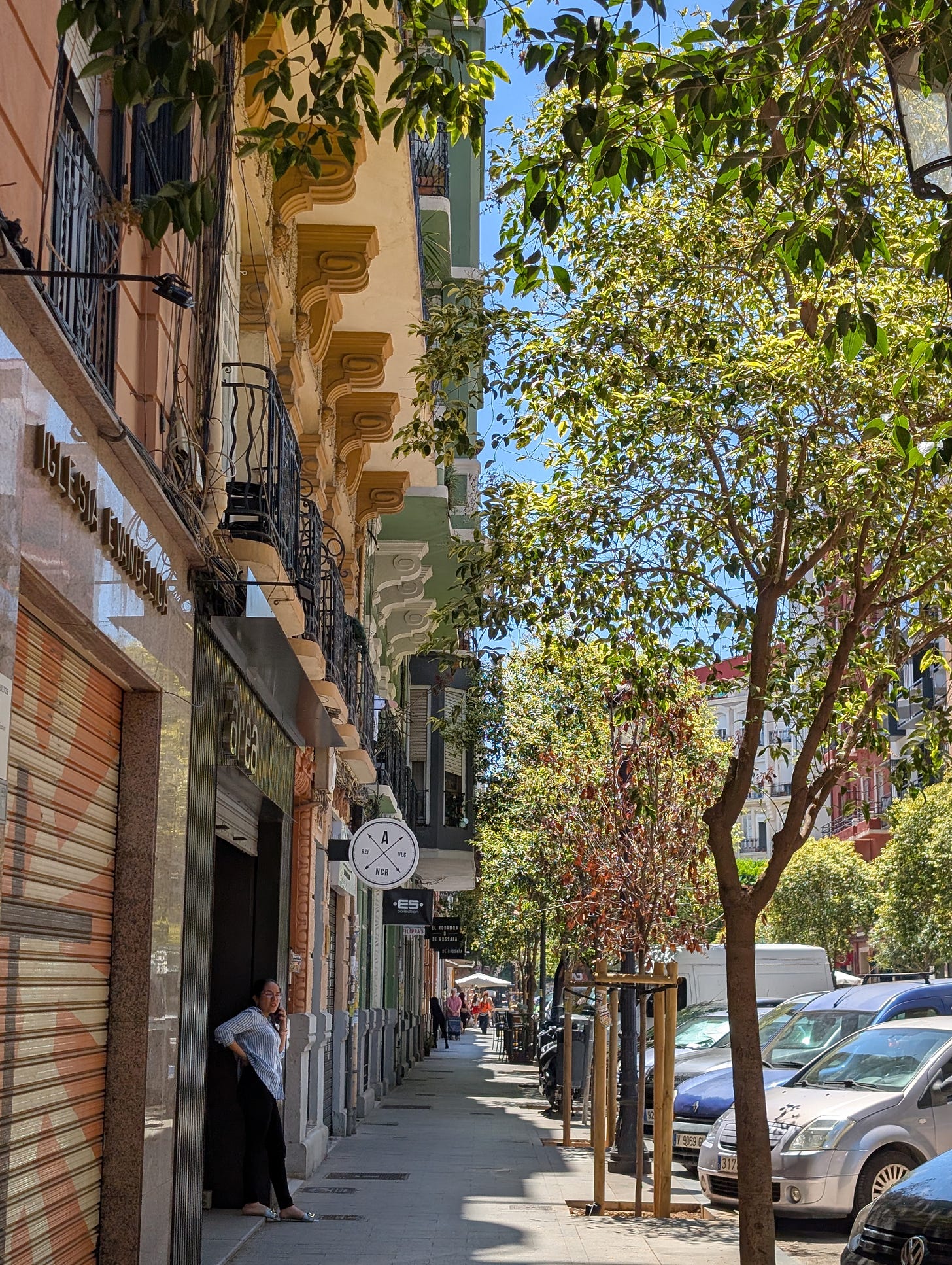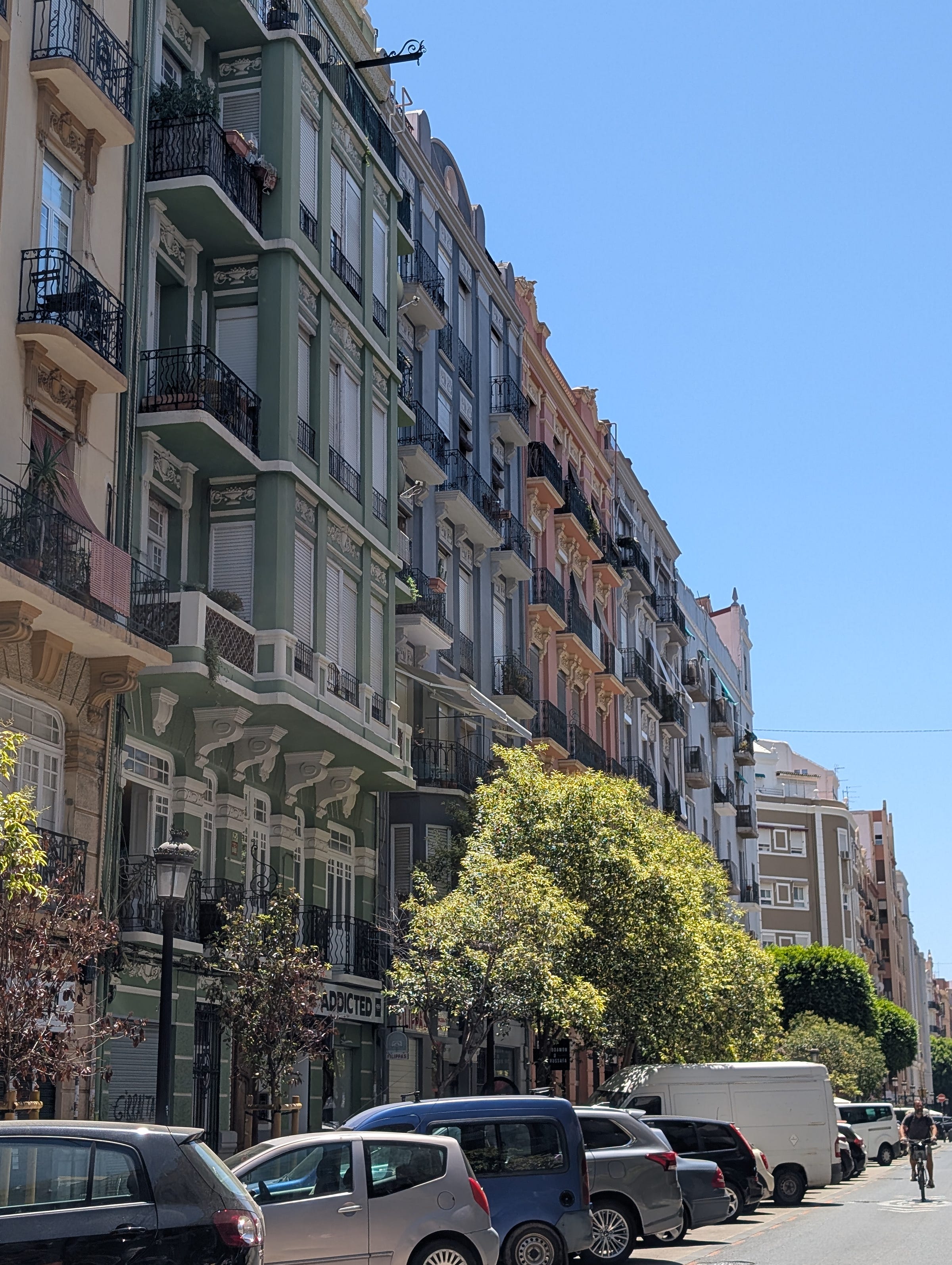Never Retire: The 15-Hour Workweek Is Enough
It’s not about working less. It’s about knowing what “enough” looks like—and organizing "enough" so you can live more.
Today’s Never Retire story is about rejecting the grind and doing something about it.
At the end, there’s a new Friki de Bici video that gets at just how much place matters in this surprisingly straightforward—but often complicated—equation.
Give it a like. Subscribe if you haven’t. And keep reading.
Dale un like. Suscríbete si aún no lo has hecho. Y sigue leyendo.
I make most of my money in about 15 hours a week. You probably do too.
In most jobs (even—maybe especially—9–5), only a small slice of the week is focused, effective output.
Not everyone can—or wants to—work just 15 hours. I can’t and I don’t, because there’s shit I want to do and get done in life.
Still—there’s probably a core 15–20 hours where the real value happens. Where you make your money and pay your bills.
The rest is often a complete and utter waste of time—the hallmark of how we’ve been taught to work.
Or it can be one or more of the following:
Gravy (financially or otherwise).
Time to organize life, current/future work, or do relatively mindless administrative tasks (e.g., send invoices, take care of taxes).
Work you do for free—for now—because you’re building something for the future. For me—right now—that’s Friki de Bici, currently focused on YouTube.
I’ve got a video this week where I talk about exactly where I am with the project—how it fits into this rhythm, and why it matters. If you’re into that, give it a watch and subscribe).
Or time spent on passions, hobbies, or anything else you do just for you.
The Myth of the Full Workweek
The lie most of us were sold is that value is in how much and how hard you work.
The hours. The grind. Work ethic.
But most of what passes as full-time work is full-time presence with maybe 15–20 hours of actual output tucked inside.
It’s not that we’re lazy. It’s that we’re overwhelmed, distracted, burned out, or asked to perform some version of work we don’t even believe in.
What I’ve found—and what I’m always tweaking—is that my most important work happens in short, focused bursts. The rest of the week is where I shape the rest of my life.
A (not-so) typical streetscape you’ll pass in Russafa, Valencia, España
What Do You Actually Get Paid For?
Forget how many hours you work. Forget productivity hacks.
What do you actually get paid for?
What do clients or employers or customers really value from you?
Not the admin. Not the emails. Not the sitting around looking busy. The thing that generates the invoice. The reason you receive a paycheck.
For me, it’s writing—clean, clear, and fast. If I can do that for a few hours a day, I’ve met my mark. Everything else is bonus, overhead, or setup for the next burst. Or—better yet—my time to do what I want, which is, quite often, more work. Because—thankfully—I get something out of it.
You might be in a totally different setup. But the question still applies:
Where’s the value in your week? And what if you organized around that—instead of filling your time with the illusion of productivity?
That’s not a workweek. That’s a structure. One you can actually live with.
This Isn’t About You Doing Less
It’s about knowing what your “enough” looks like—and building your life around that number, that structure, that reality.
You might need more than 15 hours. Or less. Or you might not have the flexibility yet to choose. But chances are, there’s still a core window each week where the real value gets created.
The question is—can you identify it?
Because once you know what the window is, you can start organizing around it.
This Is the Heart of Never Retire
Never Retiring isn’t about stopping work. It’s about doing work that fits. Work that fuels the rest of your life instead of dominating it.
It starts with knowing how much you actually need to do—financially, mentally, creatively—to feel secure, fulfilled, and free enough to live.
The number isn’t the point. The structure is.
Like this rhythm?
Never Retire is where I write about how I structure work, money, and life without burning out.
Subscribe for the next post.
🟢 25% off one year
🟠 Or the better deal: Pay $100 (or €90) once—never pay again.Working less now so you can work less longer means spending less time on the bullshit we’ve been socialized to accept—and more time building the life you actually want. Now, and for the duration.
Here’s the Friki de Bici video I mentioned—about waiting in traffic in Spain vs. LA, and what that says about how we live.




I smiled as I read. Writing, or content production, is something I do a lot of. I am not always fast and pretty much never under a deadline.
Two of my gigs are fixed price for fixed amounts of output, so I can manage that.
One is a board job where I have to be somewhat reactive. Today I guided that by prodding our CEO early in the morning re a conversation we needed to have about our interaction with a regulator. The next tool in that box is setting the timing myself and putting a meeting in the schedule to suit me. Every meeting has a POST - Purpose, Outcome, Structure, Time.
In the world of full-time work, the talk is of ROWE, results only working environment. This de-emphasises "presence" as a metric. You will still have to manage interruptions. Remeber others' failure to plan does not make it your emergency.
The moral here is that you can protect your time and avoid, minimise spontaneous interruptions. But, you need to work on finding a structure which works for you.
In my role, the "real" work happens at the front end of my shift; that first few hours is what sets the tone for the rest of the flight day. Get that rolling, and the rest of the time is spent staying out in front of things.
Unfortunately, I also work for a company that prizes "presence" above all else. There at least 5-6 layers of management between me and the C-Suite who spend most of their week hopping on Teams calls with one another and ginning up new metrics to worry about.